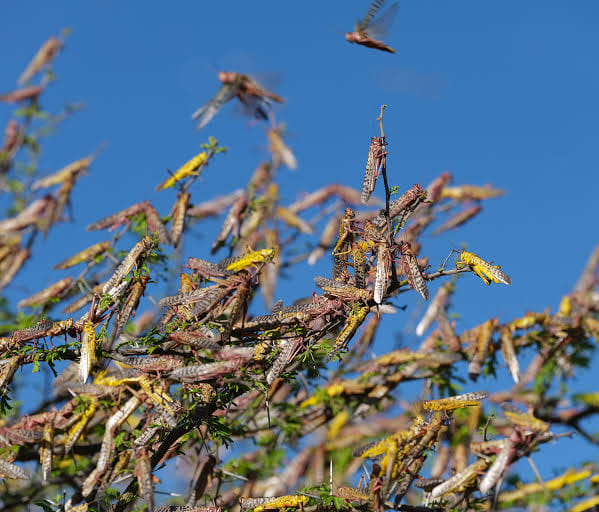Since January 2020, swarms of desert locusts have damaged over 200.000 hectares of cropland in Ethiopia. These swarms put high pressure on the access to food in different regions of Ethiopia. In April the FAO calculated that a million of people have been affected and require emergency food assistance.
According to the FAO, the current locust swarms in Ethiopia are the most severe in over 25 years. In response to the desert locust crisis, ICCO with its local implementing partners, is implementing the Dutch Relief Alliance (DRA) Desert Locust Joint Response (1) in two severely affected woredas (Gursum and Arero) in Oromia region.
As part of the DLJR, ICCO and its local partners aim to improve the access to food and support the recovery of livelihoods of a total of 27,500 vulnerable households. COVID-19 makes the situation even more urgent and therefore as part of the DLJR response ICCO and its partners implemented water, sanitation and hygiene (WASH) activities. Vulnerable households were also supported with soap along with awareness raising on hand washing to prevent the further spread of COVID-19.

